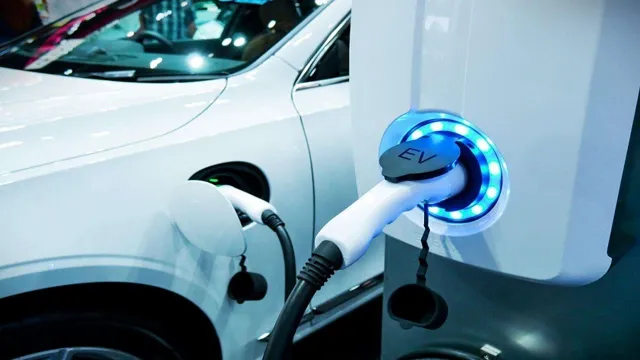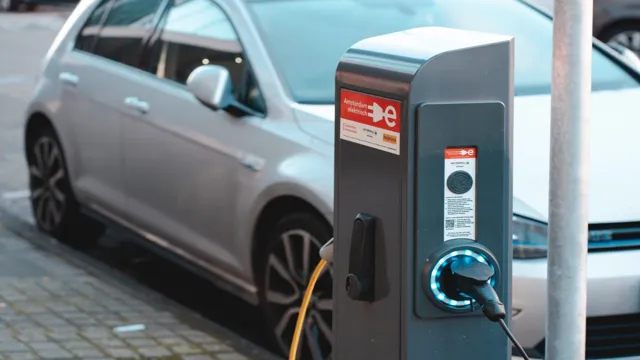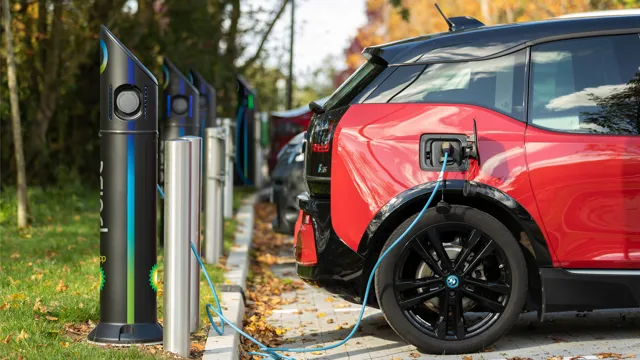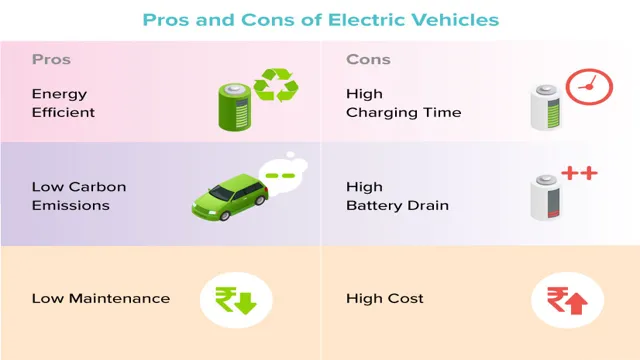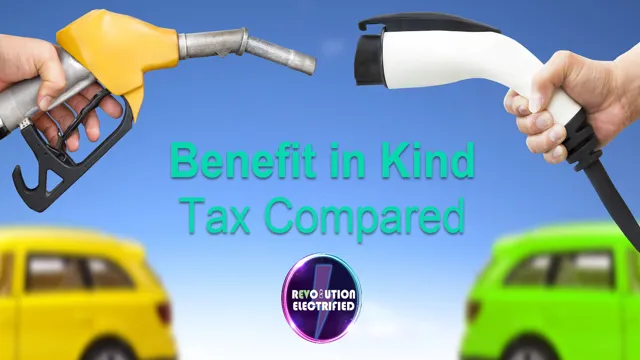Going Green on a Budget: Discover the Benefits of Buying an Electric Car for Low Income Families
If you’re looking to purchase a car and live on a tight budget, you may want to consider an electric car. Despite their reputation for being expensive, electric cars come with a variety of benefits that can make them more accessible and affordable for low-income buyers. Not only do they save you money on gas, but they also have lower maintenance costs and government incentives that can significantly reduce the purchase price.
With the rise of affordable electric car models and an increasing focus on environmental sustainability, there’s never been a better time to consider an electric car as a viable transportation option. Let’s take a closer look at the benefits of electric cars for low-income buyers and how they can help you save money while reducing your carbon footprint.
Lower Operating Costs
One of the biggest benefits of buying an electric car for low income individuals is the potential for lower operating costs. While the upfront cost of an electric car may be higher than a traditional gas-powered vehicle, the savings in the long run can be significant. Electric cars require less maintenance, as they have fewer moving parts and do not require oil changes or regular tune-ups.
Additionally, the cost of charging an electric car is often less expensive than buying gasoline. For those who live in areas with high gas prices, this can result in significant savings over time. Plus, some states and local governments offer incentives and tax credits for purchasing an electric car, further reducing the overall cost.
Overall, the lower operating costs of an electric car can make it a more attractive option for low income individuals looking to save money on transportation.
Lower fuel and maintenance costs can save low-income families money in the long-run.
Lower operating costs can be a huge relief for low-income families, especially when it comes to owning a car. With fuel and maintenance costs being two of the biggest expenses associated with owning a vehicle, finding ways to lower these costs can ultimately save families a significant amount of money in the long-run. For example, opting for a more fuel-efficient car can reduce the amount of money spent on gas, while regular maintenance and repairs can prevent costly breakdowns and extend the lifespan of the car.
It can be helpful to think of a car like a body – by taking care of it and fueling it properly, it will perform better and last longer. Plus, not having to constantly worry about expensive repairs or running out of gas can provide peace of mind and less stress for families already struggling to make ends meet. Overall, lower operating costs are not only a financial benefit for low-income families, but also contribute to a more stable and secure lifestyle.
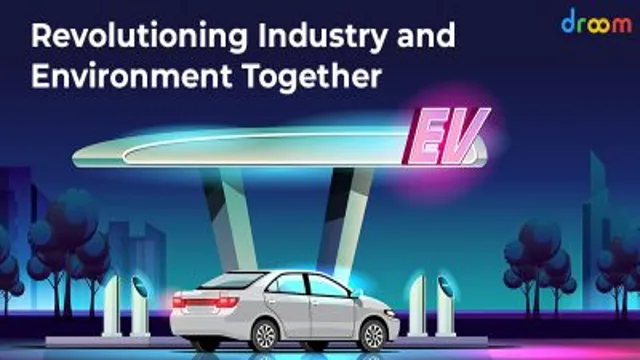
Tax Incentives and Rebates
Buying an electric car can provide numerous benefits for low-income individuals. Tax incentives and rebates are just a few ways that electric car buyers can save money. Some states offer incentives that can knock thousands of dollars off the price of an electric vehicle, making it a more affordable option.
Additionally, the federal government may offer a tax credit up to $7,500 for electric car buyers. This tax credit can greatly reduce the overall cost of the car and make it more accessible for low-income individuals. Furthermore, electric cars require less maintenance and have lower fuel costs compared to traditional gas-powered vehicles.
These benefits can result in long-term savings that can help low-income individuals and families allocate their resources more efficiently. Overall, electric cars present an opportunity for low-income individuals to save money and enjoy the benefits of cleaner, more efficient transportation.
Government tax credits and rebates can significantly reduce the upfront cost of an electric car.
Tax incentives and rebates can make buying an electric car more affordable. Various governments offer tax credits and rebates as an incentive to promote the use of electric vehicles. The amount of the tax credit or rebate varies depending on where you live, the make and model of the electric car, and other factors.
Some states in the USA offer a tax credit of up to $7,500 while others can offer even more. Besides the tax credits offered by the government, some utility companies also offer rebates to encourage their customers to buy an electric car. The rebates can range anywhere from a few hundred dollars to a couple of thousand dollars.
The good news is that you don’t have to wait until tax season to take advantage of these credits and rebates. Some state-based incentives can be applied directly to the purchase of an electric vehicle, reducing the upfront cost. As such, be sure to research the incentives available in your area before purchasing your electric car.
In summary, tax incentives and rebates can significantly reduce the upfront cost of buying an electric car, making it an affordable option for most people.
Examples: Federal EV tax credit, California Clean Vehicle Rebate
Tax incentives and rebates are becoming increasingly popular in the world of electric vehicles (EVs). A federal EV tax credit is a prime example of such incentives. This tax credit offers a range of incentives to those who purchase an EV, including a tax credit of up to $7,500.
The credit applies to both new and used EVs and is based on the battery capacity of the EV. This means that those who purchase an EV with a larger battery capacity will receive a higher tax credit, as they are purchasing a more environmentally-friendly vehicle. Another highly popular example of a tax incentive is the California Clean Vehicle Rebate, which provides up to $7,000 in rebates for those who purchase or lease an eligible EV.
This rebate is only available to California residents and is based on the income of the buyer. Those with a lower income will receive a higher rebate, making it a more equitable incentive. Both of these incentives are helping to make EVs more affordable and accessible to consumers, ultimately leading to a cleaner and more sustainable future.
Environmental Benefits
Buying an electric car can have several environmental benefits, not just for the individual owner, but also for the community. Low-income households can benefit from these advantages as well. Electric cars produce zero emissions, which means they don’t contribute to air pollution.
The reduction of harmful gases like nitrogen oxides and particulate matter can improve the air quality in the surrounding area. Electric cars also produce less noise than traditional cars, which means less noise pollution in the community. Furthermore, driving an electric car can reduce the demand for fossil fuels, which the car industry consumes a lot of.
Investing in an electric car also supports the growth of renewable energy sources, especially if the owner gets solar panels installed on their home. All in all, the benefits of buying an electric car extend beyond just financial gains, and low-income households can benefit from these environmental advantages.
Electric cars emit less carbon dioxide and pollutants, contributing to a cleaner environment and healthier communities.
Electric cars are an excellent way to reduce our carbon footprint and improve the environment. They emit far fewer pollutants and carbon dioxide than their gas-guzzling counterparts, which is great news for both the planet and our health. With rising concerns over global warming and air quality, electric cars have emerged as one of the most popular ways to combat these issues.
They require less energy to run and, unlike traditional gasoline-powered vehicles, don’t emit harmful tailpipe fumes. This means that by driving an electric car, you can help to reduce air pollution and contribute to cleaner, healthier communities. In addition, electric cars are much quieter than regular cars, which can also help to reduce noise pollution in busy urban areas.
By making the switch to an electric car, you can make a positive contribution to the environment while also enjoying a cleaner, quieter driving experience.
Examples: Improved air quality, reduced greenhouse gas emissions
Improved air quality and reduced greenhouse gas emissions are two significant environmental benefits that can be achieved through conscious efforts and actions. Air pollution is a major cause of respiratory illnesses and other health problems, and reducing it can greatly improve the quality of life of millions of people worldwide. Additionally, greenhouse gas emissions contribute to climate change, which has devastating impacts on our planet and its inhabitants.
By reducing emissions, we can help mitigate the effects of climate change and ensure a healthier and safer future for all. Simple actions such as using public transportation, reducing energy consumption, and supporting renewable energy sources can significantly reduce our individual carbon footprint and contribute to a cleaner and healthier environment. It’s important to remember that every little bit helps, and together, we can make a significant impact on the health of our planet.
Long-Term Savings
Buying an electric car can be a great long-term investment for low-income individuals. While the upfront cost may be higher than a traditional gasoline vehicle, the benefits of owning an electric car are numerous. For one, electric cars require less maintenance, and the costs of charging them are lower than the costs of gasoline.
Additionally, incentives like tax credits and state rebates can make the initial cost of buying an electric car more accessible for low-income individuals. With the rising costs of gas, owning an electric car can save money in the long run and provide a more secure financial future. Plus, it’s also an eco-friendly option that can help reduce carbon emissions and contribute to a healthier planet.
So, while the initial investment may seem daunting, the benefits of an electric car can make it a smart choice for those looking for long-term savings.
Electric cars have lower maintenance and repair costs compared to traditional gasoline cars.
Electric cars are quickly gaining popularity in today’s market, and it’s no surprise why. Not only are they environmentally friendly, but they can also save drivers a significant amount of money in the long run. Unlike traditional gasoline cars, electric cars have lower maintenance and repair costs.
This is due to the fact that electric vehicles have fewer parts, meaning there are fewer components that can malfunction or break down. Additionally, electric cars don’t require oil changes, which can also contribute to additional savings. These maintenance savings can add up over the years, making the initial investment in an electric car more financially feasible in the long term.
So next time you’re considering purchasing a new car, don’t sleep on the potential savings that electric cars have to offer.
Examples: Less frequent oil changes, fewer mechanical components to replace
Long-term savings can be achieved in different ways when it comes to vehicle maintenance. One example is reducing the frequency of oil changes. While the standard recommendation is to change the oil every 3,000 miles, some newer cars have extended intervals of up to 7,500 miles or more.
By following the manufacturer’s guidelines, you can save money on oil and filter changes over the life of your vehicle. Additionally, modern vehicles have fewer mechanical components that need replacement, such as fan belts, hoses, and spark plugs. This not only reduces replacement costs but also lowers the chances of breakdowns and repairs.
As a result, you can enjoy a more reliable and cost-effective driving experience, especially if you plan to keep your vehicle for a long time. With less maintenance cost, you can allocate more of your budget towards other important things in your life, such as savings, education, or travel. So, take good care of your car, follow the recommended maintenance schedule, and enjoy the benefits of long-term savings.
Increased Resale Value
One of the notable benefits of buying an electric car for low-income families is the increased resale value. Unlike traditional cars, electric cars tend to hold their value much longer due to their high efficiency, low maintenance costs, and long-term reliability. This means that when it’s time to sell your electric car, you’ll likely get more money back than you would with a gas-powered car of the same age.
Additionally, many states and local municipalities offer incentives for buying electric vehicles, which can further sweeten the deal. By investing in an electric car now, you may actually end up saving money in the long run, as you’ll be getting more value for your investment when it comes time to resell or trade in your vehicle. Overall, while the upfront cost of an electric car may be higher, the long-term benefits make it a worthwhile investment for low-income families looking to save money in the long run.
Electric cars have a higher resale value compared to traditional gasoline cars.
As the world moves towards sustainable transportation, electric cars are becoming increasingly popular. In addition to being eco-friendly, they also have a higher resale value compared to traditional gasoline cars. This is because electric cars have lower maintenance costs and depreciate at a slower rate.
Also, the concept of sustainability has become an important consideration for many car buyers, and the demand for electric cars continues to grow. As a result, the resale value of electric cars has been on the rise, making them a great investment for those looking to go green and save money in the long run. So, if you’re interested in buying an electric car, rest assured that you’re making a wise investment that will benefit both the environment and your wallet.
Examples: Tesla Model S, Nissan Leaf
If you’re in the market for an electric car, you’re probably thinking about more than just the initial purchase price. After all, electric vehicles tend to be more expensive than their gas-powered counterparts, and they may be more expensive to maintain as well. That’s why it’s worth considering the resale value of an electric car when you make your purchase.
Two examples of electric vehicles with strong resale values are the Tesla Model S and the Nissan Leaf. The Model S has long been considered one of the best electric cars on the market, thanks to its sleek design, impressive range, and high-tech features. As a result, it tends to hold its value well, even several years after it was first purchased.
The Nissan Leaf is another electric car with a good resale value, thanks in part to its reliable performance and low maintenance costs. If you’re looking for an electric car that will hold its value over time, either of these models could be a good fit.
Conclusion
In conclusion, buying an electric car can be a great investment for low-income individuals looking to save money on gas and maintenance costs. Not only do electric cars offer lower operating costs, but they also provide environmental benefits by reducing harmful emissions. Plus, with tax credits and other incentives available, purchasing an electric car can be more affordable than ever.
So don’t let a tight budget hold you back from making the switch – start reaping the benefits of a more efficient and eco-friendly ride today!”
FAQs
How can buying an electric car benefit low-income individuals?
Buying an electric car can benefit low-income individuals by providing long-term cost savings, as electric cars have lower maintenance and fuel costs compared to traditional gas-powered vehicles.
Are there any government incentives or rebates available for low-income individuals to purchase an electric car?
Yes, there are several federal and state incentives and rebates available for low-income individuals to purchase an electric car, including tax credits, grants, and financial assistance programs.
Will charging an electric car at home increase my electricity bill?
Charging an electric car can slightly increase your electricity bill, but it is still significantly cheaper than the cost of gasoline for a traditional car. Additionally, there are time-of-use and off-peak charging options that can further reduce charging costs.
How can I determine if an electric car is a financially feasible option for my budget?
You can check your budget and compare the costs of owning and operating an electric car with the costs of owning and operating a traditional gas-powered vehicle. You can also use online calculators that take into account the cost of electricity, charging time, and other factors to determine the potential savings of an electric car.
